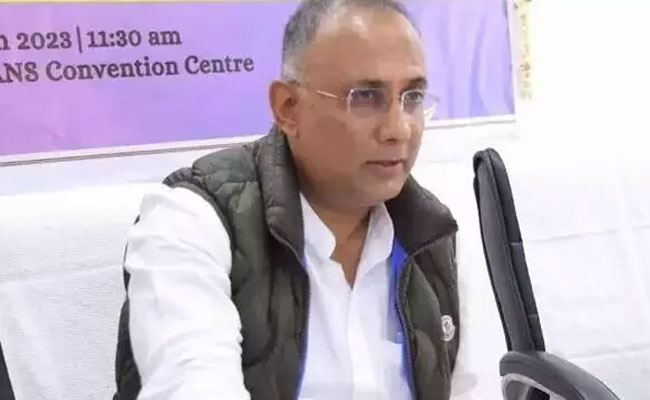Bengaluru: Health Minister Dinesh Gundu Rao has criticised Prime Minister Narendra Modi for asking for more time to bring "Acche din" (good days), stating that it is ridiculous to seek time until 2047 without achieving significant progress in the past ten years.
Speaking at a press conference at the KPCC office in Bengaluru, Rao pointed out that Modi had originally asked for five years but has now been in power for a decade. He questioned what the government has accomplished in these ten years and highlighted that there has been no significant increase in financial assistance to the poor. Rao also criticised the central government for neglecting Karnataka.
Rao also criticised Modi's claims about the Ayushman Bharat Yojana, stating that it is actually the Arogya Karnataka Yojana, with the state government providing 70% of the funds compared to the centre's 30%. He highlighted that while only 1920 crores have been received from the centre for Ayushman Bharat, the state government has contributed 4790 crores.
Regarding foreign investment, Rao credited the Congress for laying the foundation for increased foreign capital inflows during Manmohan Singh's tenure. He also criticised Modi's efforts to promote cashless transactions, stating that the amount of cash in the country has increased significantly despite claims of devaluing the rupee to promote cashless transactions.
Rao questioned Modi's comments about Bangalore, stating that the state government is effectively managing the drought situation. He criticised the central government for not providing promised funds for water source development in Bengaluru and for neglecting the city's tax contributions. Minister concluded by stating that it will be difficult for the BJP to win 200 seats in the country.
Let the Truth be known. If you read VB and like VB, please be a VB Supporter and Help us deliver the Truth to one and all.
Panaji (PTI): As part of a crackdown against tourist establishments violating laws and safety norms in the aftermath of the Arpora fire tragedy, Goa authorities on Saturday sealed a renowned club at Vagator and revoked the fire department NOC of another club.
Cafe CO2 Goa, located on a cliff overlooking the Arabian Sea at Vagator beach in North Goa, was sealed. The move came two days after Goya Club, also in Vagator, was shut down for alleged violations of rules.
Elsewhere, campaigning for local body polls, AAP leader Arvind Kejriwal said the fire incident at Birch by Romeo Lane nightclub at Arpora, which claimed 25 lives on December 6, happened because the BJP government in the state was corrupt.
An inspection of Cafe CO2 Goa by a state government-appointed team revealed that the establishment, with a seating capacity of 250, did not possess a no-objection certificate (NOC) of the Fire and Emergency Services Department. The club, which sits atop Ozrant Cliff, also did not have structural stability, the team found.
The Fire and Emergency Services on Saturday also revoked the NOC issued to Diaz Pool Club and Bar at Anjuna as the fire extinguishers installed in the establishment were found to be inadequate, said divisional fire officer Shripad Gawas.
A notice was issued to Nitin Wadhwa, the partner of the club, he said in the order.
Campaigning at Chimbel village near Panaji in support of his party's Zilla Panchayat election candidate, Aam Aadmi Party leader Kejriwal said the nightclub fire at Arpora happened because of the "corruption of the Pramod Sawant-led state government."
"Why this fire incident happened? I read in the newspapers that the nightclub had no occupancy certificate, no building licence, no excise licence, no construction licence or trade licence. The entire club was illegal but still it was going on," he said.
"How could it go on? Couldn't Pramod Sawant or anyone else see it? I was told that hafta (bribe) was being paid," the former Delhi chief minister said.
A person can not work without bribing officials in the coastal state, Kejriwal said, alleging that officers, MLAs and even ministers are accepting bribes.





